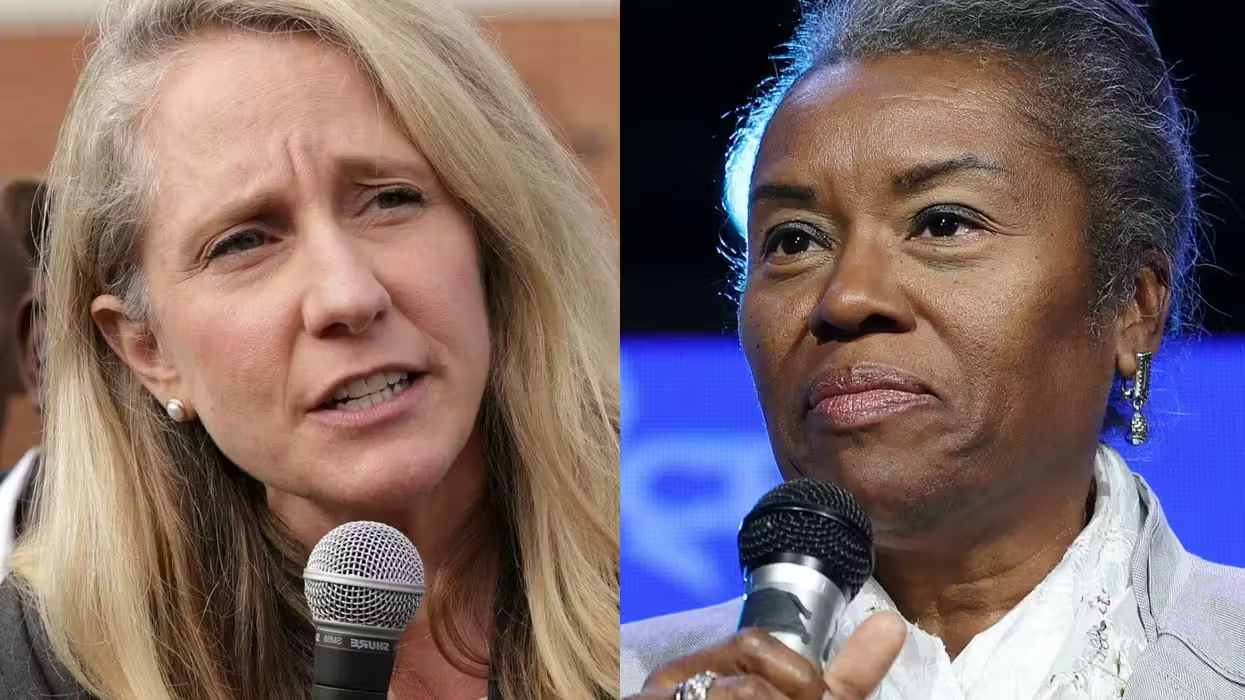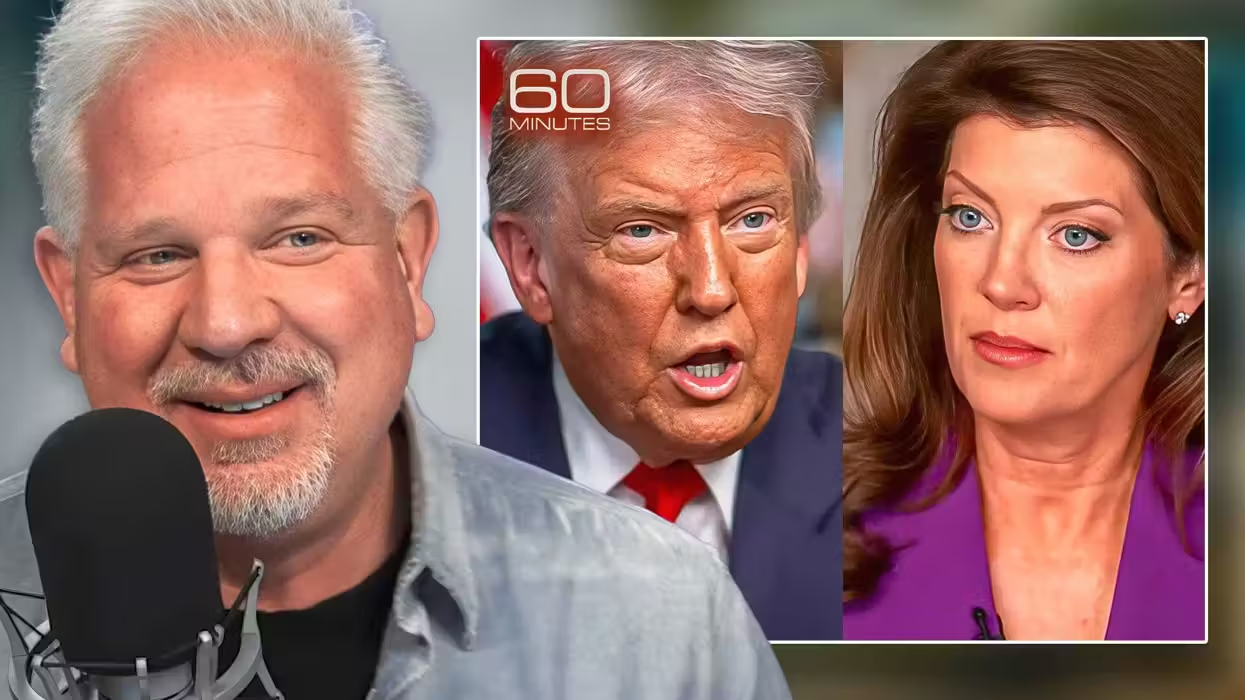By now I am sure you have heard that President Donald Trump has promised to end birthright citizenship via executive order and has issued statements indicating that he is confident that it is legal.
It is almost certainly not legal, for reasons I will address here. However, it is smart politics, and it once again shows that, if nothing else, Trump can easily manipulate his ostensible enemies in the media into discussing issues on his terms rather than theirs and can change the subject of national discussion at will.
And as usual, he has already succeeded in getting the media to overplay their hand by pretending that the issue of birthright citizenship is much more settled than it actually is.
One of the things I learned as a practicing lawyer is that you never want to predict with 100 percent certainty what a court will do. Judges — especially liberal ones — are notorious for finding ways to reach the result they want, regardless of what the actual text of the Constitution, or a federal law, or prior precedent might say.
So I cannot say with total certainty that any plan that would end birthright citizenship would end up getting rejected by the U.S. Supreme Court. After all, if nothing else, the Supreme Court is presently composed entirely of justices who have never issued a ruling on the question, and they might be inclined to overturn their prior precedent or do something completely surprising.
However, in this case, I can say with almost total certainty that this plan is doomed and that President Trump knows it. That said, there's much more wiggle room on the question than most commentators today will admit.
Many legal commentators are going to insist today that the question is settled by the 14th Amendment. I would argue that it's at least possible that the 14th Amendment requires birthright citizenship, but it is by no means certain, and existing Supreme Court precedent would at least suggest that, at least in the case of people who are only temporarily in the United States and without permanent residence, the Constitution does not require that those people be automatically given birthright citizenship.
The problem for President Trump is mainly that Article 1, Section 8 of the Constitution gives Congress the exclusive power to "establish an uniform Rule of Naturalization," and Congress has blessed birthright citizenship in federal law. There are some areas where the president at least arguably has authority that is either inherent to his constitutional office or delegated to him by Congress where he can unilaterally set policy. This, however, is not one of them.
In other words, it is entirely possible that Congress could end birthright citizenship, at least for people who are only temporarily on United States soil and do not have a permanent residence, if they were inclined to do so. It is extraordinarily unlikely that the president can successfully do it by himself.
As President Trump causes the media to dance on his strings today and freak out over his pronouncement, you're going to probably hear a lot of people on TV today confidently proclaim that the 14th Amendment unequivocally states that what President Trump is doing is illegal. It actually isn't nearly that clear or obvious.
The text of the amendment states, in relevant part, that "All persons born or naturalized in the United States, and subject to the jurisdiction thereof, are citizens of the United States and of the State wherein they reside." The sticking point here is "subject to the jurisdiction thereof."
The Supreme Court has, on a number of occasions, made nonbinding comments in its decisions (called dicta) indicating what this phrase might mean. For example, in the Slaughterhouse Cases, the Supreme Court suggested in 1873 that it did not apply to foreign consuls or ministers who are by law immune from the jurisdiction of the United States. In other cases, it has ruled that Native Americans living on sovereign tribal land do not have birthright citizenship. (See update below.)
The closest the Supreme Court has come to directly passing on this question is the case of United States v. Wong Kim Ark. This case concerned a man whose parents were noncitizens in the United States at the time he was born in San Francisco. (Side historical note: the reason they were not legally allowed to be in the United States is because the U.S. had a law at the time that literally made it illegal for persons of the "Chinese race" to enter the United States. Something to think about the next time someone tries to tell you that things are bad, from a race relations perspective, in the current United States.)
At some point, Wong returned to China for a visit, and when he came back to the United States, the authorities attempted to deny him entrance. He sued, claiming that his birth on United States soil made him a natural born citizen. The court agreed, stating that in its view of the 14th Amendment,
The foregoing considerations and authorities irresistibly lead us to these conclusions: the Fourteenth Amendment affirms the ancient and fundamental rule of citizenship by birth within the territory, in the allegiance and under the protection of the country, including all children here born of resident aliens, with the exceptions or qualifications (as old as the rule itself) of children of foreign sovereigns or their ministers, or born on foreign public ships, or of enemies within and during a hostile occupation of part of our territory, and with the single additional exception of children of members of the Indian tribes owing direct allegiance to their several tribes. The Amendment, in clear words and in manifest intent, includes the children born, within the territory of the United States, of all other persons, of whatever race or color, domiciled within the United States. Every citizen or subject of another country, while domiciled here, is within the allegiance and the protection, and consequently subject to the jurisdiction, of the United States.
However, some legal scholars have argued that, at least for some illegal immigrants, United States v. Wong Kim Ark is distinguishable. For one thing, while Wong's parents were noncitizens, they were not in the country illegally — Wong was born in 1873, and the Chinese Exclusion Acts were not passed until 1882. Prior to those acts, there was virtually no law in the United States making any kind of immigration illegal.
Second, the court placed much emphasis on the fact that, at the time of Wong's birth, his parents had a permanent domicile in the United States. Indeed, in its holding, the court stated (emphasis added):
The evident intention, and the necessary effect, of the submission of this case to the decision of the court upon the facts agreed by the parties were to present for determination the single question stated at the beginning of this opinion, namely, whether a child born in the United States, of parent of Chinese descent, who, at the time of his birth, are subjects of the Emperor of China, but have a permanent domicil and residence in the United States, and are there carrying on business, and are not employed in any diplomatic or official capacity under the Emperor of China, becomes at the time of his birth a citizen of the United States. For the reasons above stated, this court is of opinion that the question must be answered in the affirmative.
An argument can certainly be made that, at least with respect to itinerant workers or immigrants who come to the United States temporarily and for the express purpose of having a baby are not covered under the United States v. Wong Kim Ark decision. I think the Supreme Court in 2018 would rule that Wong Kim Ark would still nonetheless apply in that situation, but it is by no means an obvious and foregone conclusion.
The problem, for Trump, is that Congress has repeatedly endorsed the proposition that children of immigrants — legal or otherwise — who are born on United States soil automatically become United States citizens. Indeed, federal immigration law specifically adopts the language from the Slaughterhouse Cases and Wong Kim Ark to define who is an "immigrant" for the purposes of conferring automatic birthright citizen on their children.
The class of persons who might be legally characterized as transient aliens not "subject to the jurisdiction of the United States" is vanishingly small and would not apply to almost any of the illegal immigrants who cross the southern border; basically, children of ambassadors and foreign ministers, people on specific student visas, people who are transiently in the United States pursuant to certain treaties, people who are in foreign armies who are temporarily in a United States territory conducting joint military exercises and the like.
By having excluded these people from birthright citizenship, under ordinary principles of statutory construction, the Supreme Court will almost certainly rule that Congress intended to grant it to everyone else who is born in the United States.
In other words, ending birthright citizenship via executive order has little or no chance of actually working. If such an action is going to be taken, Congress will have to get on board. And while you are hearing the talking heads describe this action as "racist" all day, remember that a number of Democrats (including former Senate Majority Leader Harry Reid) have introduced or cosponsored legislation that would end automatic birthright citizenship for illegal immigrants.
And while Trump's action has already been characterized by CNN and other outlets as "defying the Constitution," it really isn't, or at least insofar as its defiance of the 14th Amendment. It's more likely that it's an unconstitutional infringement of authority granted to Congress under Article 1.
But what it will no doubt accomplish will be to get the media to once again engage on an issue that President Trump believes is a strength, rather than on the tragic events of the weekend, which the media believe is damaging to President Trump. If nothing else, that makes it a politically savvy move.
Update: As a point of clarification, Congress granted Native Americans born on tribal land birthright citizenship by statute in 1924. The court's decision in Elk v. Wilkins concerned merely whether such birthright citizenship was required by the 14th Amendment, and held that it is not.







